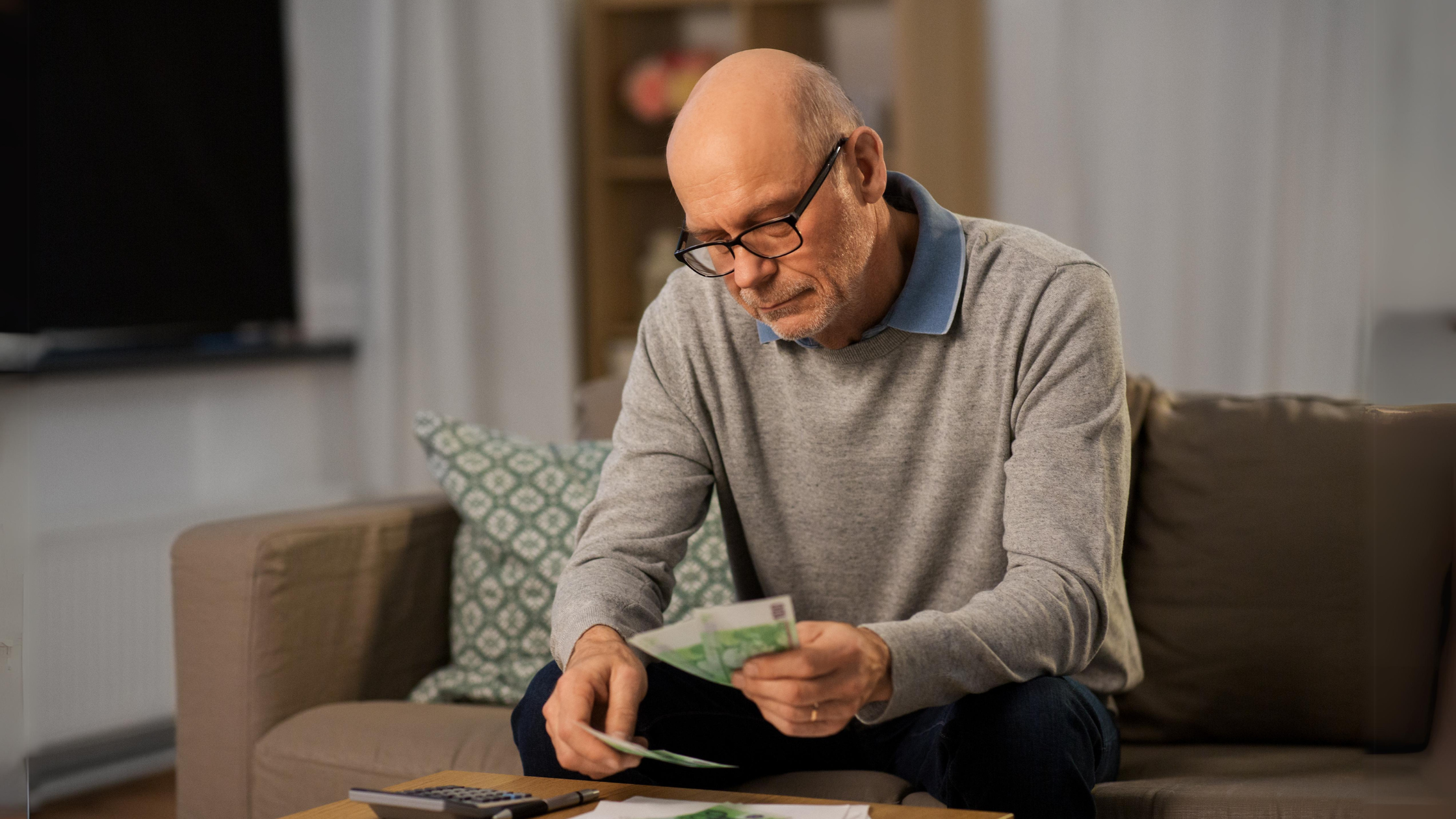Retirement should be a time of relaxation, but for many Australian seniors, it brings financial worries.
According to a report by the Australian Institute of Health and Welfare (AIHW), about 40% of older Australians experience financial stress, struggling to meet basic living expenses and maintain a decent standard of living.
Additionally, a study by the National Seniors Australia found that 53% of retirees are worried about outliving their savings and having insufficient funds to support their retirement.
The aged pension is crucial, with over 2.5 million Australians relying on it as their primary income source.
Despite recent increases many retirees struggle to cover all their expenses. Rising living costs mean the pension often falls short, leaving little for leisure or unexpected expenses.
In this blog, we will look into whether the aged pension alone is enough to support a comfortable retirement.
We will also explore several strategies and financial options that seniors can consider to improve their financial security and quality of life during their retirement years.
[ Related Post: Cost-of-living crisis for Age Pensioners: what you need to know ]
Recent Changes to the Aged Pension
In March 2024, the aged pension rates received a welcome increase, reflecting the government’s attempt to keep up with the rising cost of living.
- For single individuals, the maximum full Age Pension increased by $19.60 per fortnight, bringing it to $1,116.30 per fortnight (approximately $29,028 per year).
- Couples also saw an increase, with the pension rising by $14.70 per person per fortnight, resulting in a combined total of $1,682.80 per fortnight (approximately $43,753 per year).
These changes are designed to help retirees better manage their expenses, but the reality is that many still find it challenging to live comfortably on the pension alone.
For instance, the latest figures from the Association of Superannuation Funds of Australia (ASFA) indicate that to achieve a modest lifestyle, a single retiree needs about $32,665 annually, while a comfortable lifestyle requires $51,278. For couples, these figures are $46,994 and $72,148, respectively.
While the increase is a positive step, it falls short of meeting the financial needs required for a comfortable retirement.
How much do you need for a comfortable retirement?
A comfortable retirement allows you to maintain a higher standard of living, enjoying a range of activities and covering unexpected expenses without stress. In contrast, a modest lifestyle focuses more on covering basic needs with limited discretionary spending.
Here’s a comparison to help illustrate the differences:
| Lifestyle Aspect | Modest Lifestyle | Comfortable Retirement |
| Annual Income Needed (Single) | $32,665 | $51,278 |
| Annual Income Needed (Couple) | $46,994 | $72,148 |
| Housing | Basic home maintenance | Home improvements and renovations |
| Food | Basic groceries | Dining out and premium groceries |
| Health | Essential healthcare | Comprehensive health insurance and elective procedures |
| Leisure Activities | Local outings | International travel and regular social activities |
| Transport | Public transport | Private car ownership and maintenance |
The figures are based on the ASFA Retirement Standard as of December 2023, reflecting the costs needed for different lifestyles in retirement.
Exploring Additional Income Options
Here are a few options that can help ensure you maintain a comfortable lifestyle during your golden years.
Superannuation
Superannuation is a critical component of retirement planning in Australia. It allows you to accumulate funds throughout your working life, which you can then draw on during retirement.
Pros:
- Tax Benefits: Contributions and earnings in superannuation accounts benefit from favourable tax treatment.
- Long-term Growth: Investments in superannuation accounts are designed to grow over time, potentially providing a substantial nest egg.
Cons:
- Access Restrictions: Funds in superannuation accounts are generally not accessible until you reach preservation age.
- Market Risk: The value of your superannuation can fluctuate with market conditions, impacting your retirement income.
Part-time Work
Many retirees choose to engage in part-time work to supplement their income. This option not only provides additional funds but can also keep you socially active and mentally engaged.
Pros:
- Income Boost: Part-time work can provide a steady source of extra income.
- Social and Mental Benefits: Staying active in the workforce can improve mental health and provide social interaction.
Cons:
- Physical Demands: Depending on the job, part-time work can be physically demanding.
- Income Limits: Earning too much can affect your eligibility for the full aged pension.
Investments
Investing in shares, bonds, or property can be a way to generate additional income during retirement. Diversifying your investment portfolio can provide both growth and income opportunities.
Pros:
- Potential for Growth: Investments can increase in value over time, providing capital gains and income through dividends or rental income.
- Flexibility: You can choose from a variety of investment options to suit your risk tolerance and financial goals.
Cons:
- Risk: Investments come with the risk of losing capital, especially in volatile markets.
- Complexity: Managing investments can be complex and may require professional advice.
Downsizing
Selling a larger home and moving to a smaller, more manageable property can free up equity that can be used to boost your retirement income.
Pros:
- Releases Equity: Downsizing can provide a significant lump sum that can be invested or used for living expenses.
- Lower Expenses: Moving to a smaller home can reduce maintenance and utility costs.
Cons:
- Emotional Attachment: Leaving a long-term family home can be emotionally challenging.
- Costs of Moving: The process of selling and buying property, as well as moving, can incur significant costs.
[ Related Post: Reverse Mortgage or Downsizing: Which Option is Best for Your Retirement? ]
How Reverse Mortgages Can Help
Aside from the options listed above, Reverse Mortgages are now becoming a popular solution for Australian seniors who are struggling with their retirement income.
A Reverse Mortgage allows homeowners aged 60 and over to convert part of the equity in their home into cash without having to sell the property.
Unlike traditional mortgages, you don’t make monthly repayments. Instead, the loan is repaid when you sell your home, move into aged care, or pass away.
How Does it Work?
You can receive the loan as a lump sum, a line of credit, or regular payments. The amount you can borrow depends on your age, the value of your home, and the lender’s policies.
Benefits for Retirees
- Access Home Equity: Use the value of your home without selling it.
- No Monthly Repayments: Repay the loan when the home is sold.
- Stay in Your Home: Continue living in your home.
- Flexible Payment Options: Choose how you receive the funds.
- Financial Freedom: Use the money for any purpose, like medical expenses or home renovations.
Considerations
- Interest Adds Up: The loan grows over time due to interest.
- Reduced Inheritance: The loan repayment may reduce what you leave to heirs.
- Fees: There are higher fees compared to other loans.
Want to learn more about Reverse Mortgage? Download your FREE Reverse Mortgage GUIDE.
Ready to Apply? You can now check your eligibility online or call Seniors First on 1300 745 745.
Disclaimer: This article is for informational purposes only and does not constitute financial advice. Please consult a licensed financial advisor before you make any decision.




According to the Australian Bureau of Statistics (ABS), the poverty line (based on 50% of median household after tax income) is $489.00 per week for a single adult and $1,027.00 for a couple with two children, based on the latest data from the ABS.
When pensions reach $1.00 above the poverty line, then the pension is at the level it should be.
Allow Pensioners to work WHATEVER hours they choose, even 40 hours a week OR MORE, BUT DO NOT alter the Pension amount received. Do the same as NZ. You get productivity from the workers and the Govt gets the PAYE tax the workers has to pay. A WIN WIN for both parties.
Thanks for your contribution William, interesting point about NZ.
Yes -the age pension is extremely modest for those relying on that as their only source of income (not including drawings under a reverse mortgage). BUT, if a strong government -both Federal and State-were to get serious on price gouging then the current level of the pension would travel further. Power charges; vehicle fuel charges; fresh food costs; etc, etc- all seem to have a green light to charge what they like!! At the 6 monthly so called cost of living pension adjustments, many price gouging businesses are “ready” to pounce immediately thus the so called “ cost of living adjustment” simply is absorbed -pensioners no better off!!
The best thing the government can do to improve seniors’ life is to either reduce the tax rate drastically or totally remove it. We have paid more than enough in our lifetime of working.
$9 per week, increase in pension, my water rates have tripled, from $90 to$230 qtr our aussi gas is being sold to Japan for 2-3cents litre while we pay electricity prices for gas(our gas has always been much cheaper than electricity)they say groceries have gone up 15% rubbish! I can name twenty prices that have doubled in 1 fortnight coles and woolies house brand serviettes have gone from 95c to1.95 i dont know how intelligent people cant see the forrest for the trees…thank god our politicians can see the plight of the pensioner and awarded us the princely sum to lighten our burden, I can now afford to buy my crumpets again, god ive (missed them)When you think about it pensions are the best way to put more money into circulation as pensioners SPEND it others use extra cash to pay down luxuries like child care mortgages and savings, so in reality pensions actually go straight back into the community&the economy. sorry I didn’t mean to talk sense
We worked every working day of our lives and more, many a day from 2am till 10 pm at night 7 days a week, self employed, no super. Invested in shares, blue chip (ha) but in the 2008 crash lost almost everything. Have our own small retirement home but have had to get a reverse mortgage – what a joke, the interest rate is 9.6% calculated daily. DO NOT TAKE A REVERSE MORTGAGE OUT. This is ridiculous. We have about $15,000 in savings which goes no where. We retired at me 65 and my husband 67 due to his ill health. We worked hard to get our 4 children the best education to do what they wanted so they would never have to struggle like we have – they have all have good jobs and do appreciate what we did for them. My father was a rat of Tobruk and back then no help for family while he spent at least 3 months in hospital every year on shock treatment as a result of war injuries. My husband also came from a very poor family, both his parents died young with medical conditions preventing them working. We worked hard so we NEVER collected even 1 day unemployment but feel so bad and judged because we are “aged pensioners” We also have always struggled to pay private health care which prevents us having money to go places and do things – life is so boring no having money to go do what we would love to do. Government should try and get a reduced reverse mortage for people like us, it is a rip off but needed when you have no back up money. 9.65% compound interest is just not Australian for us.
Thanks for sharing your views, and your story, Les. In our experience over nearly the last 20 years, we sometimes find people are hostile to the idea of Reverse Mortgages until they understand how they really work. (A) it is possible to have funds available via a Cash Reserve. Interest is only calculated on the money drawn, as it is used – not on the full available limit. (B) drawing small amounts gradually over time (eg; $500 p.m) can often make a big difference to lifestyle with a much lower interest cost vs drawing a large lump sum at the start (C) the interest rates we have available today are from 8.80% (not 9.45%) and (D) it’s important to note that rates typically go up and they go down over the medium and long term. This article (with video) is a useful summary. https://seniorsfirst.com.au/reverse-mortgage/high-or-low-the-historical-reality-of-interest-rates-in-australia/ Hope this info is useful.
Hi Les and wife. Check out what the Federal government offers if you want to go down the path of reverse mortgage. I think it is 3.9%, much cheaper than any other reverse mortgage deals on offer.
Thanks Julie, good point. The HEAS also know as the ‘government reverse mortgage’ is a great option in many cases, especially where not much money is required. However there are limitations. For a full breakdown of pros & cons see this article https://seniorsfirst.com.au/reverse-mortgage/centrelink-home-equity-access-scheme-heas-vs-reverse-mortgage-loans/
This process was amazingly painfull–every time i thought i had it they wanted more and more paperwork. Dont be fooled by the 4-6 wk time line mine has been in for 9wks and still dont have the money
Thanks Vivien for the comment. Sorry to hear of unexpected delays. Unfortunately the providers themselves can sometimes make unexpected requests for additional information.
I am a bookkeeper (78) and I have advised people about to go on the Age Pension that you must choose between a mortgage or eating. You cannot survive on the pension if you want both.
Human wants out-way human needs. You must be prepared to change your way of living to fit in with your lower income.
I do not agree with your statement that “Retirement should be a time of relaxation”. Who thought that one up. “You make your bed, you lie in it”.
I took out a reverse mortgage so now No worries about a secure place to live. I shop mainly at Aldi so plenty to eat. I save money each fortnight which I bank in a high interest savings account that builds up for special occasions purchasing.
I have spoken to my three children about a lesser inheritance and they are happy with that.
As for comfortable Retirement estimates – get rid of this advice. The publication of assumed income estimates is prone to worry people rather than finding ways to live within their new means.
I have $16,000 in super which is there to bury me. I bought my grave site before I stopped full-time work. So overall, I have a peace-of-mind not experienced in my work life. A wonderful feeling.
So, I sincerely hope you alter your promotional material to what people do have NOT what they supposedly deserve.
Many thanks
Trevor Chivell
Thanks for the thoughtful comment Trevor. You make some interesting points, we will take your feedback onboard.
Totally agree. Anyone who worked PAID TAXES and never collected the dole should and landed on the aged pension through no fault of their own should never have to live like this.